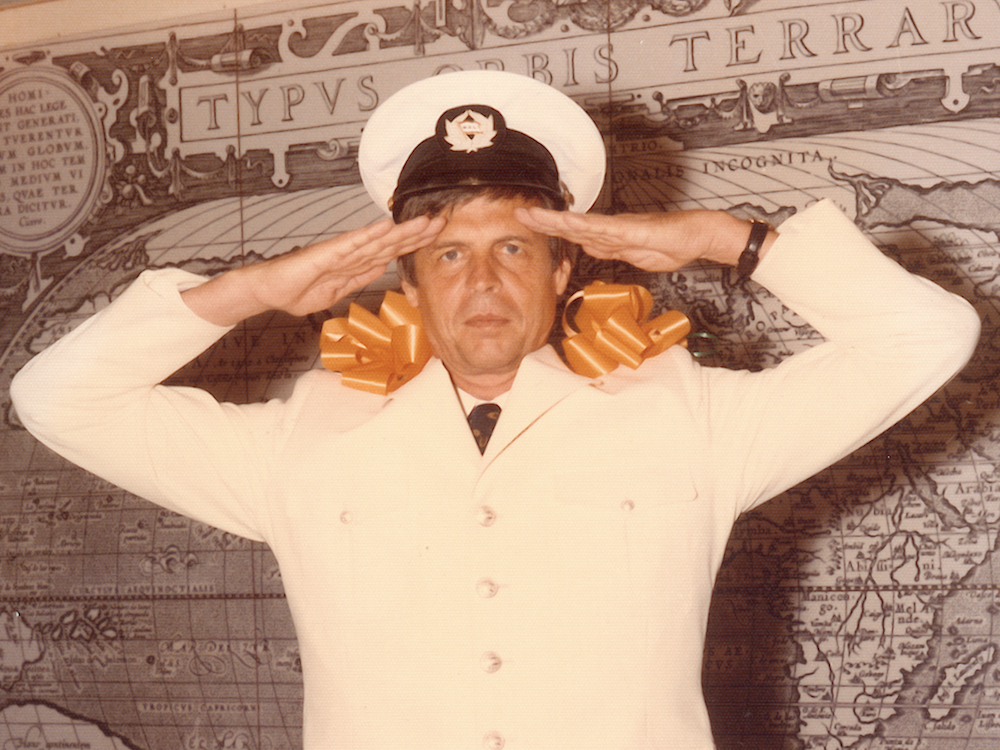In March, The Paris Review launched The Art of Distance, a newsletter highlighting unlocked archive pieces that resonate with the staff of the magazine, quarantine-appropriate writing on the Daily, resources from our peer organizations, and more. Read Emily Nemens’s introductory letter here, and find the latest unlocked archive pieces below.
“This week, enjoy some levity on us. I think we could all use a few belly laughs.” —Emily Nemens, Editor
I first fell for E. B. White as a little girl, upon reading Charlotte’s Web. I loved him again when, at the conclusion of my first editing job, at the Metropolitan Museum, my boss gave me Maira Kalman’s illustrated Elements of Style, by Strunk and White. I became a fan a third time when I realized White was Roger Angell’s stepdad: What were their dinner conversations like? Lively, based on some action-packed passages in his Art of the Essay interview. Punctuation has never been so threatening (“Commas in The New Yorker fall with the precision of knives in a circus act, outlining the victim”), nor children’s capacity for new vocabulary so vivid (“Children are game for anything. I throw them hard words, and they backhand them over the net”). Also not grandiose, based on his modest assessment of success (on reviving Strunk’s Elements of Style: “It cost me a year out of my life, so little did I know about grammar”) and his utter devotion to Katherine White. He also discusses midcentury satire, recaptioning cartoons, and other funny things in a charming, casual way that the interviewers George Plimpton and Frank Crowther describe as having the “off-hand grace” of an improvising dancer. I call it a fourth arrow in the heart. —EN
Miranda July—author, filmmaker, and humor connoisseur—has been a leader in quarantine morale. In late March, July held a ceremony for her very own COVID International Arts Festival on Instagram, clad in an oversize pink head wrap and her signature wire-rimmed glasses. This past week, she put out a casting call for a mysterious play or film she is producing entirely on social media. Mesmerized by July’s recent projects, I felt inspired to revisit two stories she contributed to The Paris Review in 2003, “Birthmark” and “Making Love in 2003.” In typical July fashion, the latter starts in medias res. A writer sits in her college adviser’s living room, waiting with his wife for him to come home. We are unsure why the writer is there, other than for some kind of help with her career. And it turns out, after a few forced pleasantries, that the college adviser’s wife is Madeleine L’Engle. It is impossible to summarize where the story goes next, but rest assured, this is the first of many unexpected, perversely humorous twists. July’s 2003 stories are absurd but highly logical—a blunt examination of power, sex, and the written word. —Elinor Hitt, Intern
Matthew Baker’s extraordinary satirical story “Why Visit America” was in the first issue I worked on when I joined the staff of The Paris Review, and I’ll admit that when I was setting it up for online publication, I did not like it—it’s a formatting nightmare, full of all kinds of headings and indents and special spacing that the internet simply wasn’t designed for. But then the author read a good portion of it standing atop the office pool table at our issue launch party, and I forgave the hours I’d spent fussing with nonbreaking spaces. This story—a tale of the birth of a brave new bureaucracy wrapped in a kind of travel guide—is, alas, a clear-eyed (and hilarious) view of the contemporary American mess through a pair of cracked rose-colored glasses. May it transport you, via the scenic route, to where you already are. —Craig Morgan Teicher, Digital Director
Central to most humor is the element of surprise. No fiction writer has mastered this as gracefully as Joy Williams, whose sentences tumble off the page in dazzling, unpredictable sequences. “The Yard Boy,” which appeared in the Winter 1977 issue, is no less deadpan than the rest of her brilliant work, and each of the story’s paragraphs offers a lesson in subverting expectations. Consider this sequence: “Mrs. Wilson follows the yard boy around as he tends to the hibiscus, the bougainvillea, the jacaranda, the horse cassia, the Java flower, the flame vine. They stand beneath the mango, looking up. ‘Isn’t it pagan,’ Mrs. Wilson says. Close the mouth, shut the doors, untie the tangles, soften the light, the yard boy thinks. Mrs. Wilson says, ‘It’s a waste this place, don’t you think? I’ve never understood nature, all this effort. All this will.’ ” These turns and those that follow could be perceived as random, but they’re not. Every bit helps confound the reader. As in many of Williams’s stories, the reward lies in her ability to fully inhabit a scene until the hilarious truth begins to blossom. —Brian Ransom, Assistant Online Editor
Long after her death, Dorothy Parker is still overburdened with invitations to strangers’ ideal dinner parties, dreading another evening of tepid soup and burned stuffed peppers with Gandhi and Einstein and Shakespeare. In her Art of Fiction interview with Marion Capron, Parker acknowledges that her wit precedes her and deflates her: “ ‘Why it got so bad,’ she has said bitterly, ‘that they began to laugh before I opened my mouth.’ ” From her “Hogarthian” apartment, ruled by a poodle and decorated with an ominous painting of a sheepdog, she reflects on the burden of humor. “A ‘smart-cracker’ they called me, and that makes me sick and unhappy. There’s a helluva distance between wise-cracking and wit.” She effaces her wit, just as she demonstrates it: “Wit has truth in it; wise-cracking is simply calisthenics with words.” All this rings true. Now, why haven’t you touched your pepper? —Chris Littlewood, Intern
Sign up here to receive a fresh installment of The Art of Distance in your inbox every Monday.
from The Paris Review https://ift.tt/2yivw7K

Comments
Post a Comment